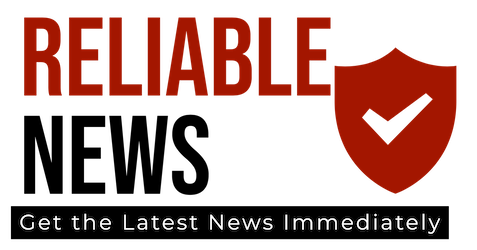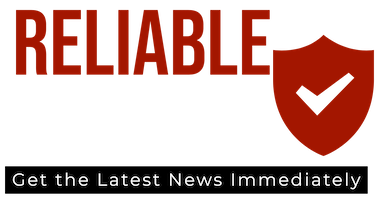New Flyer Manufacturing Facility
St. Cloud, Minnesota
2:53 P.M. CST
THE VICE PRESIDENT: Hi, everyone. (Applause.) Oh, it’s good to see everyone. Hi. Please have a seat. I’m here to announce the shift change. (Laughter.)
Oh, it’s good to be with everyone. And, Mr. Vice President, Wade, thank you for that introduction. (Laughter.)
But really, truly, Wade, thank you. It’s been great to walk around and see the work that’s happening here. And it really is wonderful to be with all of you. Matt, thank you for taking me around as well.
And it’s so good to be back in Minnesota with so many incredible leaders.
I want to give a shout-out to the Governor, Tim Walz. He can’t be with us today. He’s in Washington with a bunch of the governors who are meeting there for their annual meeting. But in his absence, I have to talk about him.
He has been a true champion and a partner to the President and our administration, and, in particular, a champion for our climate and for communities.
In fact, as you all know, earlier this week, he signed a law that will make Minnesota’s electricity 100 percent carbon-free by 2040. That’s a big deal. (Applause.) That’s a big deal.
So, to Governor Walz; to the leaders who are here; the leaders of the state legislature; the general, who is here; and to all of the activists and organizers who fought for years to achieve these goals, congratulations, and thank you for all that you are doing right here in Minnesota to lead our nation forward.
So, on Tuesday, our President, Joe Biden, spoke to the nation. And he declared that the state of our union is strong. And he noted that over the past two years, America has created over 12 million jobs, unemployment has fallen to the lowest level that it’s been in 50 years. And since we took office, more Americans have started small businesses than in any other two-year period in our history.
Think about that. Think about what that means for families, for communities, for the children of America.
But we all know that we still have more work to do to continue to build a nation where all people, no matter where they live, have the opportunity not only to survive but to thrive.
And so that’s why we’re here today at New Flyer St. Cloud.
I don’t have to tell anybody here: Businesses that do the kind of work, combined with union leadership and workers, are building the future of our nation. And when I look around here and the work that is happening here, everyone knows buses are our nation’s most popular form of public transportation. Most popular form of public transportation.
Every day, millions of Americans ride the bus to go to work, to school, to church, to the grocery store, to wherever they need to get.
America’s buses get people where they need to go. They are essential. And they are in desperate need of upgrade.
The majority of our nation’s buses run on diesel fuel.
Well, here’s the thing: Diesel exhaust is a poison. Breathing diesel fumes can cause headaches and nausea. It can make asthma and chronic bronchitis worse. And it can even cause a risk for cancer. Diesel exhaust is also a greenhouse gas.
Every year, gas-powered buses add millions of tons of pollution to our atmosphere, which further accelerates the climate crisis. But there is a solution to all of this, and that solution is parked right over there and right over there and right over there. These buses — electric buses.
Because as everyone here knows, electric buses do not produce toxic exhaust. They are healthier for people, cleaner for communities, and better for our planet.
A few minutes ago, as Matt walked me around, I had the opportunity to take a look at one of the buses that is being built in this factory. It is a model of American innovation. No exhaust. No diesel smell. The bus has Wi-Fi and even USB outlets next to every seat. I mean, come on, imagine. You can charge your phone on your way home from work. That’s good stuff.
And electric buses are also cheaper to run and more reliable than gas-powered buses. Cities and towns with electric fleets spend less on gas and maintenance. And as some of the leaders here can attest, that means more money in the local budget to add more routes, more stops, and more drivers. And that means more reliable service. So, you know, for anyone who’s had to wait too long in the cold because the bus is late, you know how much that matters.
All of this to say electric buses are key to the future of public transportation in America — which is why, since taking office, together with Democrats and Republicans, we have invested over $5.5 billion to put thousands of new electric transit buses on the streets of our nation. (Applause.)
And we’ve also done that to create jobs. (Bell rings in the background.) (Laughter.) So people can have shift changes — (laughter) — and have decent work hours and have good-paying union jobs! (Applause.)
And it has meant jobs for steel workers in Ohio who make the glass for the bus windshields. Jobs for electrical workers in Wisconsin who install and repair the charging stations. Jobs for CWA workers here who assemble hundreds of buses a year. And jobs for the workers at a New Flyer facility just outside of Louisville, Kentucky, who just this week voted to unionize and join CWA. (Applause.)
And I want to recognize New Flyer management for your commitment to build a positive and productive relationship with your workers.
So, Minnesota, this is a transformative moment. The climate crisis has presented an historic challenge to our nation and to the world. It also presents an historic opportunity to create good jobs, to drive innovation, to generate prosperity in all communities.
You know, last August, our administration made the single-largest investment to fight the climate crisis in history. In just the last six months, that investment has already created more than 100,000 clean energy jobs. Many — (applause).
That includes many jobs that do not require a four-year college degree but do require the kind of skills-building that the folks here train people to do — jobs that offer salaries and benefits that allow folks to raise a family, to buy a home, to take a vacation from time to time, to retire with dignity. That’s critically important.
As we build America’s future, as we strengthen America’s economy, let us also strengthen the working people of America. We can do it all. We can do it all. (Applause.)
So, I’ll close with this. As some of you may remember, in 2009, just a few months after he was elected, then-Vice President Joe Biden stood in this plant.
At the time — who was there? (Applause.) Okay. So, you remember. And I — Mayor, I know you were there. We talked about that.
At the time, here at this plant, you were producing cutting-edge hybrid transit buses. And then Vice President Biden said, and I’ll quote, “This company is an example of the future.”
Well, a lot has changed in the past 14 years. But one thing has not: You are still an example of America’s future. (Applause.)
So, I am here to say we are still counting on you because here in St. Cloud, you are not just building better buses, you are building a better America.
God bless you. And God bless America. Thank you. (Applause.)
END 3:05 P.M. CST
Official news published at https://www.whitehouse.gov/briefing-room/speeches-remarks/2023/02/09/remarks-by-vice-president-harris-on-creating-a-clean-energy-economy-and-good-paying-union-jobs/



